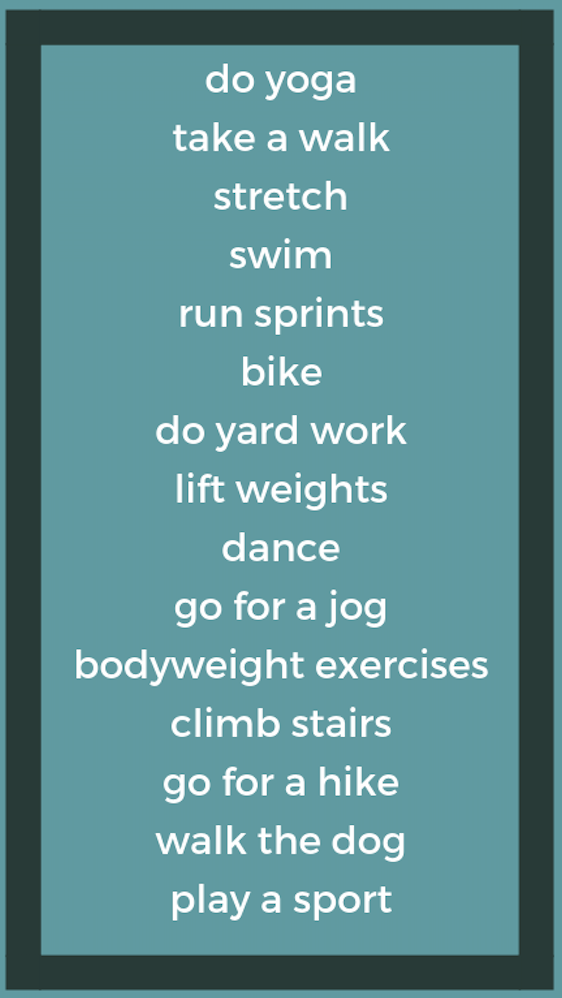updated 7/2020 to reflect the 4th edition of Intuitive Eating
As a certified personal trainer, I really love this next Intuitive Eating principle…
Movement – Feel the Difference.
Exercise is part of a healthy lifestyle, but the focus needs to be on the difference you feel in your body rather than the calorie burning effect.
When exercise is something you HAVE to do, you’re much less likely to WANT to do it. However, moving your body in a way that is sustainable and enjoyable will allow you to experience the benefits that will keep your coming back.
Benefits such as:
increased bone strength
increased stress tolerance
decreased blood pressure
reduced risk for many types of chronic diseases
increased heart and lung strength
increased metabolism
better appetite regulation
improved mood
improved memory
better sleep at night
more energy
and more!
When exercise is decoupled from weight loss and not seen as a “chore”, it becomes joyful. It’s actually a form of respecting your body, because our bodies like to move. Just get active and feel the difference. Mindful exercise can help you to feel more confident in your body, too.
Is your attitude “i have to” or “i get to”?
However, intuitive eating does not mean you need to go to the gym every day or even workout every day. You still need to listen to your body when you really don’t feel like moving—that’s allowed. You don’t have to earn rest. Sometimes the best thing you can do for your health is to sleep or sit on the couch. Your body knows what it needs, so listen.
Don’t fall into the “it’s not worth it” trap either. You don’t have to sweat to have a “good” workout or be in the gym for an hour for your workout to “count”. Little activities add up!
Simply MOVING for 30 minutes most days of the week (and it can be split up—such as moving for 10 minutes 3 times) reduces your risk of heart disease by half!
Focus on how you feel and tune into the things you and your body enjoy. See below for a list of some different ways to get active, and if you don’t like something, try something else!
Always remember to replenish your glycogen stores too, AKA eat your carbs! In the Intuitive Eating book, we’re shown that proper carbohydrate replenishment after a 2-mile run is the equivalent of 3 slices of bread. For a 6-mile run, 10-11 pieces of bread!
We can’t move joyfully, or much at all, if we don’t have proper amounts of fuel and energy, and our bodies can’t repair themselves after intense movement without enough nourishment.






































